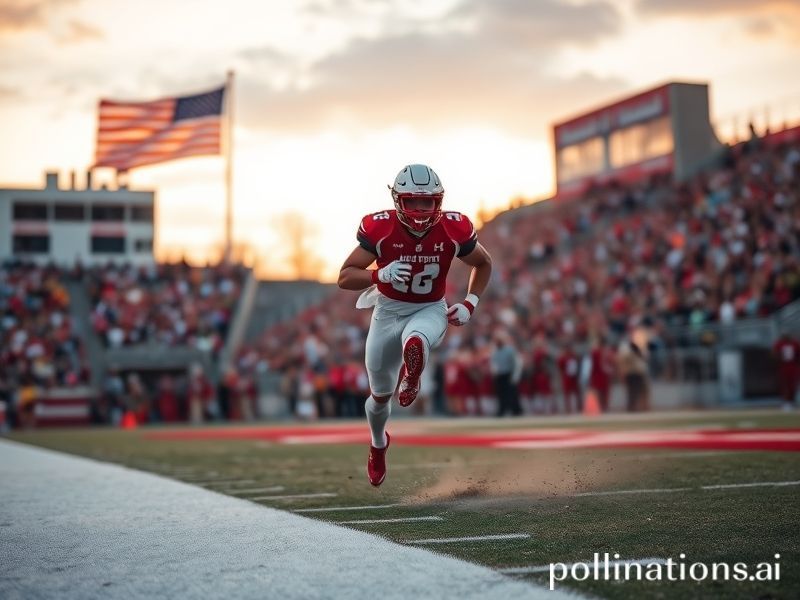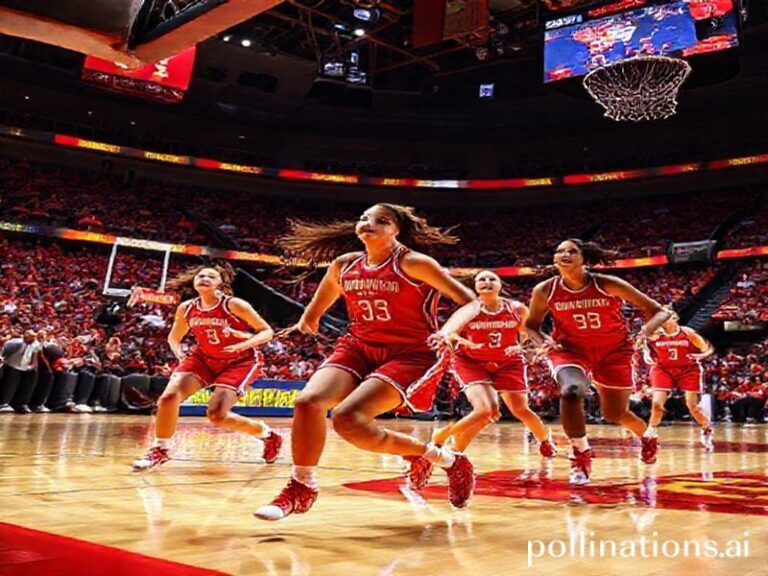Lafayette Football: Why a Tiny U.S. College Game Still Matters to the Rest of the Planet
Lafayette Football: The Tiny, Militantly American Sport That Somehow Still Matters to the Rest of Us
Bylines from Parisian cafés, Lagos traffic jams, and the sort of Tokyo izakaya that smells like soy sauce and regret.
The words “Lafayette football” conjure, to most citizens of Earth, a baffled shrug followed by the inevitable follow-up: “Is that the one with the helmets or the one with the flopping?” The answer, dear cosmopolitans, is the helmets—American gridiron, played in Easton, Pennsylvania, by a liberal-arts college whose total enrollment (≈2,500) is smaller than the average queue for a Shanghai metro transfer. Yet this weekend, Lafayette’s Leopards will line up against Lehigh in the 159th installment of “The Rivalry,” the most-played matchup in U.S. college football, a statistic as soothingly meaningless outside U.S. borders as “world’s largest ball of twine” or “most TikTok followers named Kyle.”
Still, Lafayette football is worth a raised eyebrow from the international gallery precisely because it is so parochially irrelevant—an antique pocket watch ticking defiantly inside the Apple Watch that is global sport. While the English Premier League sells itself to petrostates faster than you can say “sportswashing,” Lafayette still plays in Fisher Stadium, capacity 13,132, a number quaint enough to fit inside the average Bundesliga parking deck. The program’s annual budget—roughly $4 million—wouldn’t cover Lionel Messi’s dry-cleaning bill, yet it finances 100-odd young Americans who believe, with touching sincerity, that running into one another at high speed is character-building.
From a global vantage, Lafayette football is a living fossil of pre-neoliberal sport: no transfer fees, no NIL collectives bankrolled by cryptocurrency cowboys, no drone-cam swooping for that cinematic Amazon Prime angle. The players are unpaid, their compensation limited to a liberal-arts degree that retails at $78,000 a year—an exchange rate that would make even the IOC blush. In an age when Saudi Arabia’s PIF can buy an entire golf tour between breakfast and brunch, Lafayette’s insistence on “amateurism” feels almost Soviet in its stubborn purity, like a Lada still sputtering along the information superhighway.
Yet the game’s tentacles reach farther than you’d think. ESPN+, the Mouse’s streaming tentacle, beams the matchup into 200-odd countries, mostly as filler between cornhole tournaments. More than once I’ve watched in a Berlin bar while a confused bartender tries to explain to patrons why the clock stops when someone drops a pass. Meanwhile, Lafayette’s roster—recruited largely from New Jersey, Pennsylvania, and the sort of prep schools whose lacrosse teams have yacht-club parking—now includes a German defensive lineman (Max Krah, class of ’25) and a placekicker from Melbourne (Lachlan Van Rensburg), both drawn by the promise of a free education and the faint hope that someone outside North America might one day care. Spoiler: they won’t.
The broader significance, if we’re being honest, lies not in the game itself but in what it refuses to become. While the rest of the planet’s sports mutate into geopolitical chess pieces—see: Qatar’s World Cup, China’s Olympic soft-power cosplay—Lafayette football persists as a small, stubborn act of cultural insulation. It is the sporting equivalent of those Parisian bistros that still refuse to serve brunch: annoying, anachronistic, and weirdly noble. In a world where every pastime must justify itself by scale, reach, or EBITDA, Lafayette dares to be merely local. There is, perhaps, something darkly comforting in that. The apocalypse may come, the seas may rise, but somewhere in Pennsylvania two groups of overachieving adolescents will still butt heads over a misshapen leather egg, cheered on by alumni who believe the universe tops out at the Delaware River.
So raise whatever passes for a glass in your corner of the dystopia—fermented mare’s milk in Ulaanbaatar, overpriced espresso in Nairobi, or lukewarm Yuengling in Easton—and toast the Leopards. They won’t save the world, but at least they’re not trying to monetize it.







